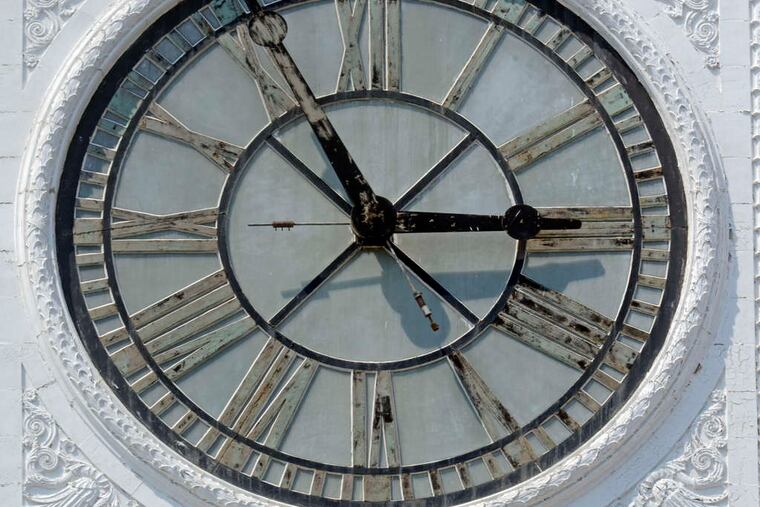A Delaware official wants a new time zone. Will Pennsylvania and New Jersey do the same?
Time, it seems, is not on Delaware's side. One of the state's most powerful politicians wants to the Delaware into a different time zone, essentially creating a permanent daylight saving time. But, will Pennsylvania, New Jersey and Maryland sync their watches too?

One of Delaware’s most powerful elected officials doesn’t like switching between standard and daylight saving time. His solution: Move the state into a different time zone.
“I don’t know one person who likes moving their clocks forward and back,” Senate President Pro Tempore David McBride said in a statement this week. “It’s more than an annoyance, frankly. It’s a social experiment that has produced more harm than good and is now on the verge of becoming a public-health issue.”
McBride, a Democrat from Wilmington, and other state senators and House members introduced a bill on Tuesday that would “get Delaware off of the daylight saving merry-go-round once and for all,” he said.
The bill would move Delaware out of the Eastern Time Zone and place it in the next one to the east, the Atlantic Time Zone. Once there, Delaware would exempt itself from having to change clocks, effectively putting it under permanent daylight saving time. The Atlantic Time Zone is currently used by parts of Canada, such as Nova Scotia, and U.S. territories in the Caribbean, including Puerto Rico and the U.S. Virgin Islands.
The workaround is needed, officials say, because Delaware can’t just exempt itself from observing standard time in the Eastern Time Zone because of federal law.
McBride said he knows that moving time zones might cause confusion in neighboring states, including Pennsylvania, New Jersey, and Maryland, potentially hindering business.
“So many here in the mid-Atlantic live in one state and work in another,” McBride said. “No one wants to lose an hour between home and the office. But if we all agree, we’ll never have to change our clocks again.”
The legislation says that Delaware’s neighboring states would have to agree to switch time zones before the plan could take effect. That appears unlikely any time soon. None of the states is proposing a similar move. And it would have to get approval from the U.S. Department of Transportation, which oversees time zones.
Other states, such as Massachusetts, also have considered switching to the Atlantic Time Zone to get around the twice-yearly hassle, and also realized they would have to pull in neighboring states.
People around the world have started to question the point of switching between standard and daylight saving time, a practice first instituted by Germany during World War I under the theory that it would save coal. The belief is that more light later in the day, after people return from work, means less energy use. A congressional study showed, however, that the savings appeared to be tiny in the United States.
Last year, the European Commission proposed to end daylight saving time, possibly as soon as this year, calling it outdated. It conducted a public survey that received 4.6 million replies and found 84 percent of European citizens were in favor of doing away with it.
Every so often, Congress tinkers with the timing. The most recent change was in 2005, with Congress setting the second Sunday of March as the beginning of daylight saving time and the first Sunday in November as the start of standard time. That means eight months out of the year are on daylight saving time.
Delaware officials cited some widely publicized studies that show such time shifting results in an increased risk of heart attacks, an increase in fatal automobile crashes, and even more pedestrian fatalities.
“The truth is that these disruptive time changes … are part of an outdated system whose usefulness has long since passed,” said State Sen. Bryan Townsend (D., New Castle), the bill’s co-prime sponsor.